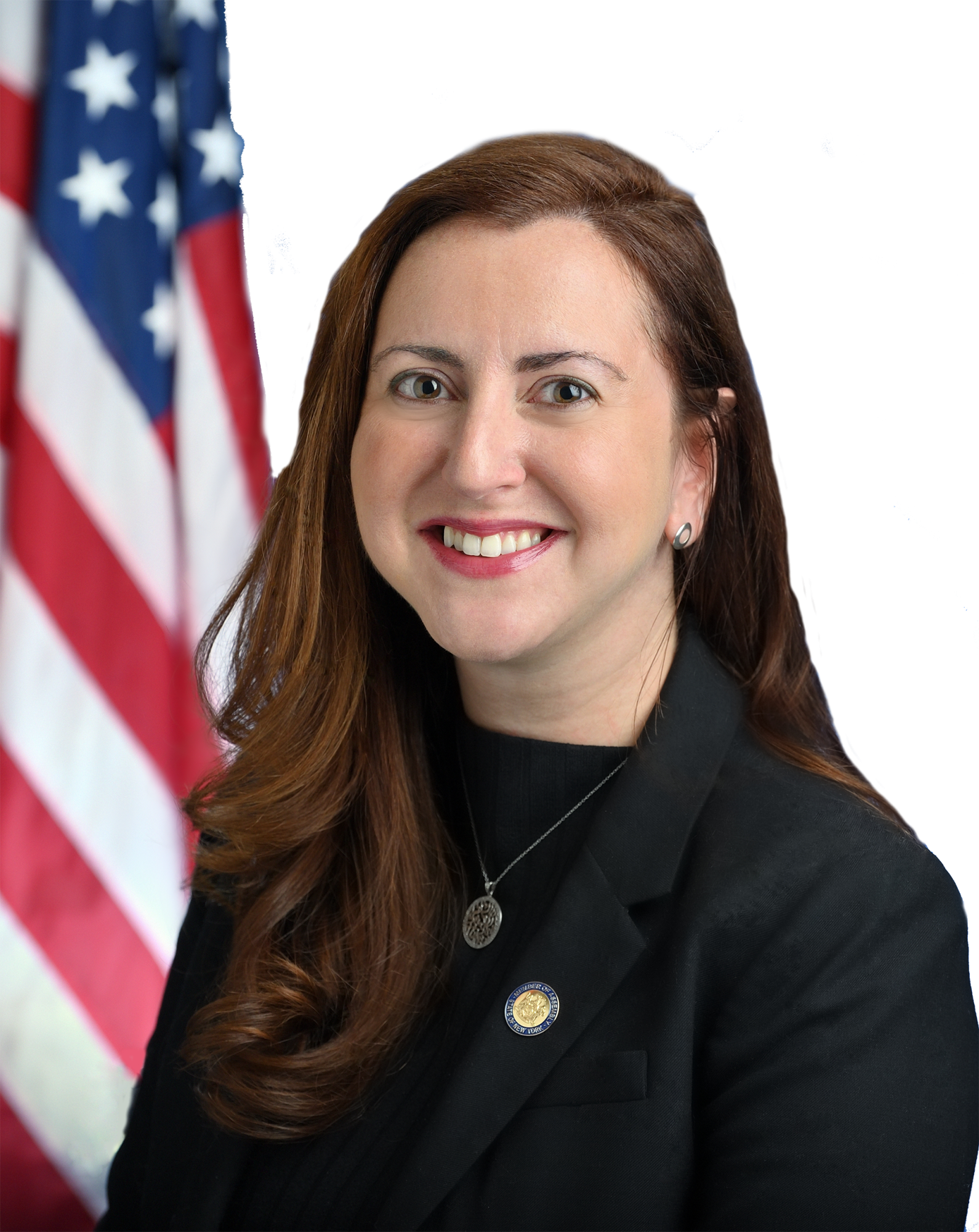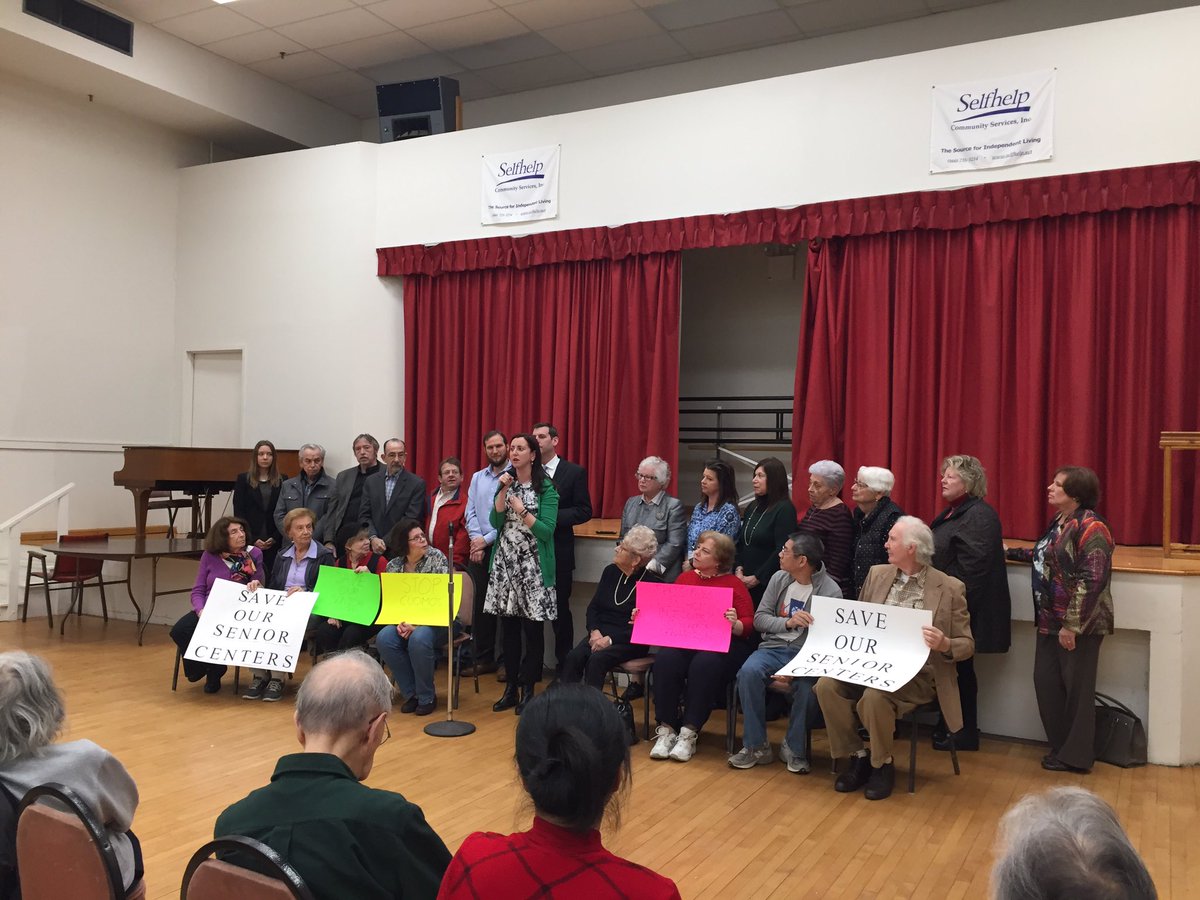Braunstein, Stavisky, & Rozic Join Seniors to Protest Governor's Proposed Cuts to Senior Centers
On Thursday, February 23, 2017, Assemblyman Edward C. Braunstein (D-Bayside) was joined by Senator Toby Ann Stavisky (D-Flushing) and Assemblywoman Nily Rozic (D,WF-Fresh Meadows) at a rally protesting Governor Cuomo’s budget proposal redirecting Title XX funding that is used to support senior centers to other budgetary purposes. If NYC is mandated to allocate the Title XX funds for other expenses, $17 million in funding would be lost and 65 senior centers could be forced to close.
I strongly urge Governor Cuomo to reconsider his budget proposal, which would have a devastating impact on thousands of seniors in New York City,” said Assemblyman Edward Braunstein. “Senior centers provide vital services to the elderly, including a place to socialize, as well as meals and health and recreational programs. While we agree that funding for child care is important and should be increased, it should not come at the expense of the health and welfare of seniors who are already worried about potential cuts on the federal level.”
“Selfhelp Community Services provides over 10,000 seniors a year with recreation, health and wellness programming, meals, and social activities throughout our five senior centers in Queens. We are deeply concerned about the proposed changes to Title XX funds and the impact on our clients and seniors around the City. We strongly urge Governor Cuomo and the Legislature to restore this critical funding so older adults are able to access these vital services at our City’s senior centers. We also thank Assemblyman Edward Braunstein for his advocacy on this issue.” – Sandy Myers, Director of Government and External Relations, Selfhelp Community Services.
“I am disappointed by the governor’s proposal to redirect funds from our senior centers,” Senator Toby Ann Stavisky said. “For many seniors, coming to facilities such as Selfhelp is an important part of their daily routine, acting as a source for socializing and learning. I have already received concerns from constituents who are afraid their senior center will be one of the 65 that will close if this proposal goes through. It is not fair to leave seniors and employees uncertain of their senior center’s fate. We must find an alternative way to come up with the funding, that won’t deeply impact the people of New York.”
“The proposed cuts in the Governor's budget to Title XX funding that helps our seniors is unacceptable and would have a devastating impact on senior centers in Queens,” said Assemblywoman Nily Rozic. “These social services are a lifeline, and we need to ensure senior centers and other crucial programs are fully funded. New Yorkers should know the State is providing for all people, and I pledge to stand with our seniors and my colleagues in government in fighting these cuts from being included in the final state budget.”
According to Bobbie Sackman, Associate Executive Director of Public Policy, LiveOn NY, “While Governor Cuomo’s announcement to make New York the first age friendly state in the nation is laudable, it is disturbing that his budget would then close 65 NYC senior centers. Governor Cuomo failed to respond to the 13,800 seniors from 104 NYC senior centers who sent him letters urging him to change his budget language to prevent the $17 million cut to Title XX funding. This unnecessarily leaves thousands of seniors in high anxiety that their beloved local senior center will close. The closing of 65 senior centers would deprive 6,000 seniors a day of a local senior center, 1.5 million meals annually would be lost, and 24,000 hours of case assistance to help seniors access public benefits, housing concerns, and other necessary aid in their own language would disappear. Seniors are understandably fired up and left asking why the Governor would do this. We are concerned that senior centers will become a political football when they should be treated as the life sustaining programs they are. LiveOn NY and our partners will continue to work to return the Title XX funds to senior centers which they have funded for four decades.”
Assemblyman Ron Kim said, “As lawmakers, it is vital that our actions match our words. Governor Cuomo has spoken often about supporting our communities and helping the middle class. But this sudden change for such a crucial source of funding, which our seniors and senior centers have traditionally relied on for decades, will harm the very New Yorkers we should be helping. Transferring funding from one much-needed service to another, and pitting the two against each other, is not in the best interests of anyone. I thank Assemblyman Braunstein for speaking out on this issue, and look forward to working with him on behalf of our communities.”
“New York’s seniors rely on our city’s senior centers as a place to engage in an activity, socialize with friends, access vital health & wellness services, or even take in a nutritious meal,” said Assemblyman David Weprin. “By re-directing Title XX funding away from senior centers, the executive budget proposal could ensure the closure of up to 65 senior centers and bring harm to harm our city’s most accomplished citizens during their golden years. I thank my colleague, Assemblyman Edward Braunstein, for bringing us together to protest this re-allocation of Title XX funding and hope that these proposed cuts to our senior centers will be reconsidered in their entirety.”
“New York City is at risk of losing millions of dollars for senior centers on which thousands of seniors rely for regular meals and vital social services,” said Council Member Barry S. Grodenchik. “I join my colleagues in working to ensure that our centers receive the funding they need to operate.”
“Without this funding, New York City will be forced to close 65 senior centers, stranding 6,000 seniors who go to the centers to have a meal, socialize with friends, and access vital services," said Council Member Paul Vallone, Chair of the Subcommittee on Senior Centers. "Our state and city budgets must reflect our commitment to the needs of our rapidly growing senior population.”

